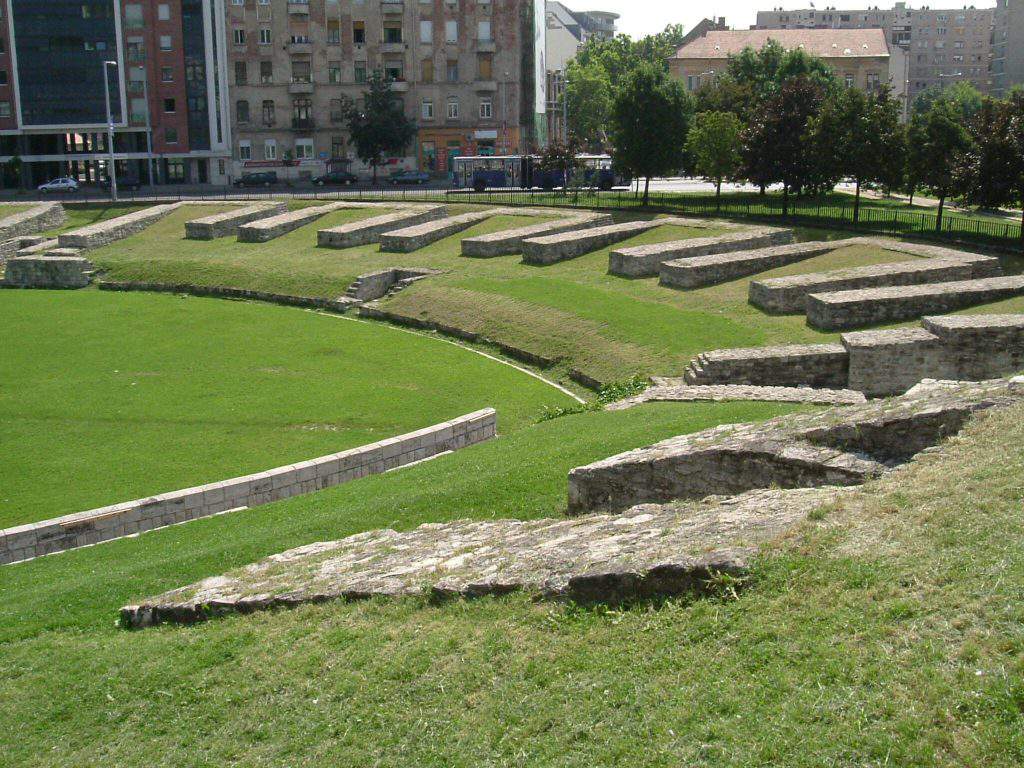Aquincum, the ruins of a city on the edge of Budapest

Wandering around the almost 2000 years old ruins it is hard to imagine that there used to be a city here, where people lived their everyday lives. Aquincum, the capital of Alsó-Pannónia one time is truncated today, but still amazing, says vjm.hu.
The hand of the rapidly expanding Roman Empire reached even the land of Pannonia. After its traders made sure that the area is perfect for settling thanks to its favourable natural features and geographical conditions of transport, soon soldiers also arrived in the area which is Óbuda today. When we mention Aquincum nowadays, we simply mean the area railed off, which is visible from far away with its conduits if we drive along the Szentendrei út. But it is important to see that Aquincum does not stand for this part only.
The city originally consisted of three parts: firstly, the soldiers’ quarter, the extension of which we know pretty exactly; secondly, a legion camp, the inhabitants of which were the members of the elite team of 6000 people; thirdly, the communal city, hallmarked by the water pipes, although only a part of it can be seen on the surface.

The first remnant of the city was found by a vine-grower in Óbuda in 1778, while he was digging a stack. It was a part of the famous Roman floor heating. But the excavations that time did more harm than good, because they had no methodology and were too hurried. This might have resulted in more artefacts being damaged or getting lost.
Professional excavation started only in the end of the 19th century, when the objects and building remains were conserved as well.
The city centre was built in the crossing of the Eastern and Western roads. We can go anywhere in the world and see any Roman province or even Rome itself, the most important buildings of public administration will be found in this junction. Here you can find the Sanctuary, where sacrifices can be presented for Juno, Jupiter, or Minerva, in hope for a better future. Although Romans did not expect the Celtic tribes settling in the area before them to identify with their culture, religion, and customs, but they required them to sacrifice in this spot once every year.
The Basilica can be found here too, which, at the time, was not a religious building, but rather one for making law.
A chicken thief was taken here for his deeds the same way as a murderer or someone who left garbage in front of their shops – because, back then, it was a crime too.
Since there used to be a market place in the Basilica’s location, small shops were placed behind the corridors of the bigger meeting rooms.
Walking in the centre, it is almost natural for us to run into one of the typical features of the Roman culture, a bath. Visiting baths was an essential part of the Roman way of life, not only because of hygienic reasons. Most of the baths had a gym too, where Latin men could do exercise. Occasionally women also used the gym, but men and women could never be present in the bath at the same time.
The famous Roman invention, water pipes delivered water to the communal baths, which was retrieved from the nearby springs. The luxurious experience was ensured by the floor heating, so that people did not even hiss a little as they stepped out of the hot bath, on the floor. This comfort was ensured by the slaves, cutting wood in another room.
Besides bathing, there were other means of entertainment too: gladiator games, animal fights, and a more humane form of amusement, the theatre. But most of the buildings excavated are residential buildings, most of them bearing classic Italian features, accommodated to the climate.
Featured Image: Wikicommons by Kaboldy
Source: http://vjm.hu







